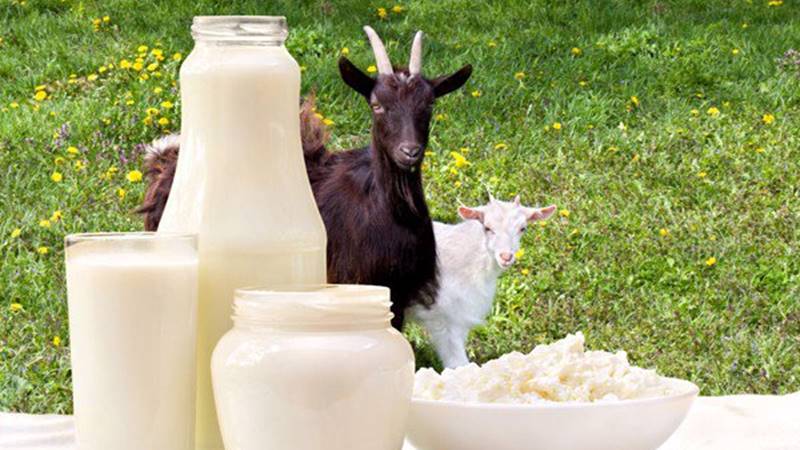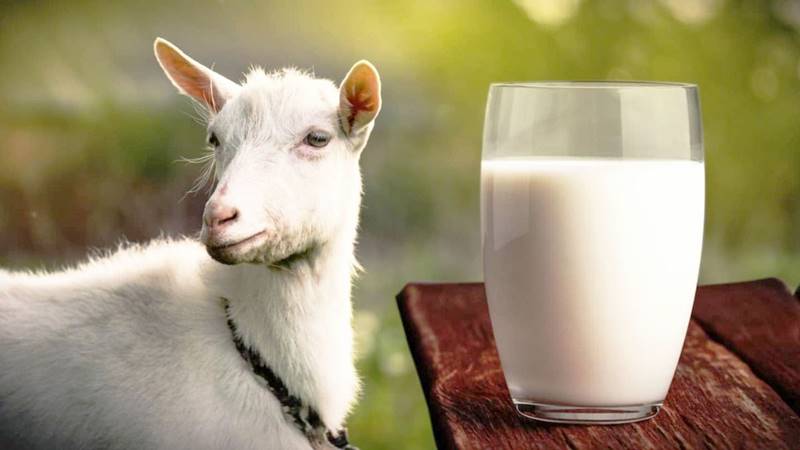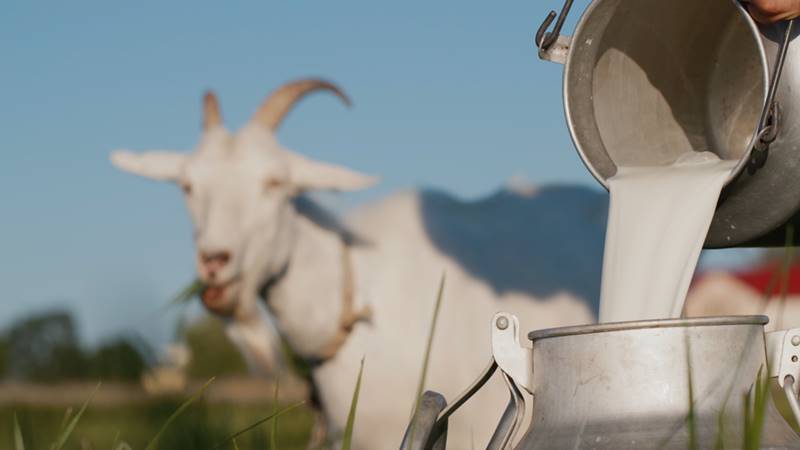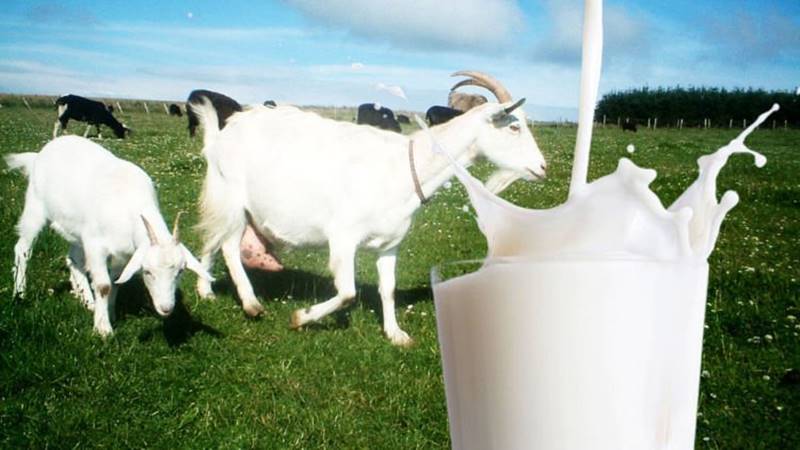Goat’s milk is an extremely nutritious alternative to cow’s milk. But is it suitable for infants? Let’s explore this topic together in today’s article!
1 Is Goat Milk Good for Infants?
When it comes to weaning babies off breast milk, most parents opt for cow’s milk as the next best option. However, in some countries, goat’s milk is preferred as a substitute for both breast milk and cow’s milk. This has led to an increasing number of parents considering goat’s milk for their little ones.
 Is goat milk suitable for infants?
Is goat milk suitable for infants?
According to research and information from Nguyen Tri Phuong Hospital, goat’s milk is packed with essential nutrients, including high levels of , and . These contribute to the holistic development of infants, making it a competitive alternative to cow’s milk. If your baby struggles with intolerance or allergies to cow’s milk, goat’s milk could be an excellent choice.
2 Benefits of Goat Milk for Young Children
Advantages of Goat Milk for Youngsters
 Goat milk reduces the risk of allergies in infants.
Goat milk reduces the risk of allergies in infants.
Compared to cow’s milk, which is a common allergen, goat’s milk is less likely to trigger allergic reactions. Typically, cow’s milk contains allergens like casein and whey, which can adversely affect children with compromised immune systems or adaptability. Goat’s milk, on the other hand, is virtually allergen-free, making it a safe and suitable choice for infants.
Contains Easily Digestible Fat
Cow’s milk tends to have longer-chain fatty acids, which take longer for infants to digest. In contrast, goat’s milk contains shorter and medium-chain fatty acids, making it much easier for babies to digest.
Low in Lactose
Goat’s milk has a very low lactose content, making it a great alternative for babies who struggle with lactose intolerance.
3 How to Choose the Right Goat Milk for Your Child
 Tips for selecting the best goat milk for your child.
Tips for selecting the best goat milk for your child.
To choose the right goat’s milk for your little one, consider the following suggestions:
- Always opt for goat’s milk formulas that contain .
- Read the labels carefully to avoid any potential allergens.
- Sometimes, it’s necessary to dilute goat’s milk due to its high protein content.
- After giving your baby goat’s milk, observe them for any unusual symptoms. If all seems well, you can continue offering it to them.
4 Precautions When Giving Goat Milk to Children
 Important considerations when giving goat milk to children.
Important considerations when giving goat milk to children.
While goat’s milk offers a wealth of nutrients and is a fantastic alternative to cow’s milk, there are a few things to keep in mind when introducing it to your child:
- Goat’s milk has lower levels of folic acid and than cow’s milk, which can lead to anemia.
- Due to its high protein content, excessive consumption of goat’s milk can cause dehydration and put strain on your child’s kidneys.
- Allergies are still a risk, even with goat’s milk. Monitor your child for any signs of allergies when introducing this new type of milk.
Goat’s milk is a nutrient-rich alternative to cow’s milk and can support your child’s development. However, it’s important to choose the right type of goat’s milk and keep an eye on your child’s reactions to ensure their health and well-being.
Source: Hellobacsi.com
































